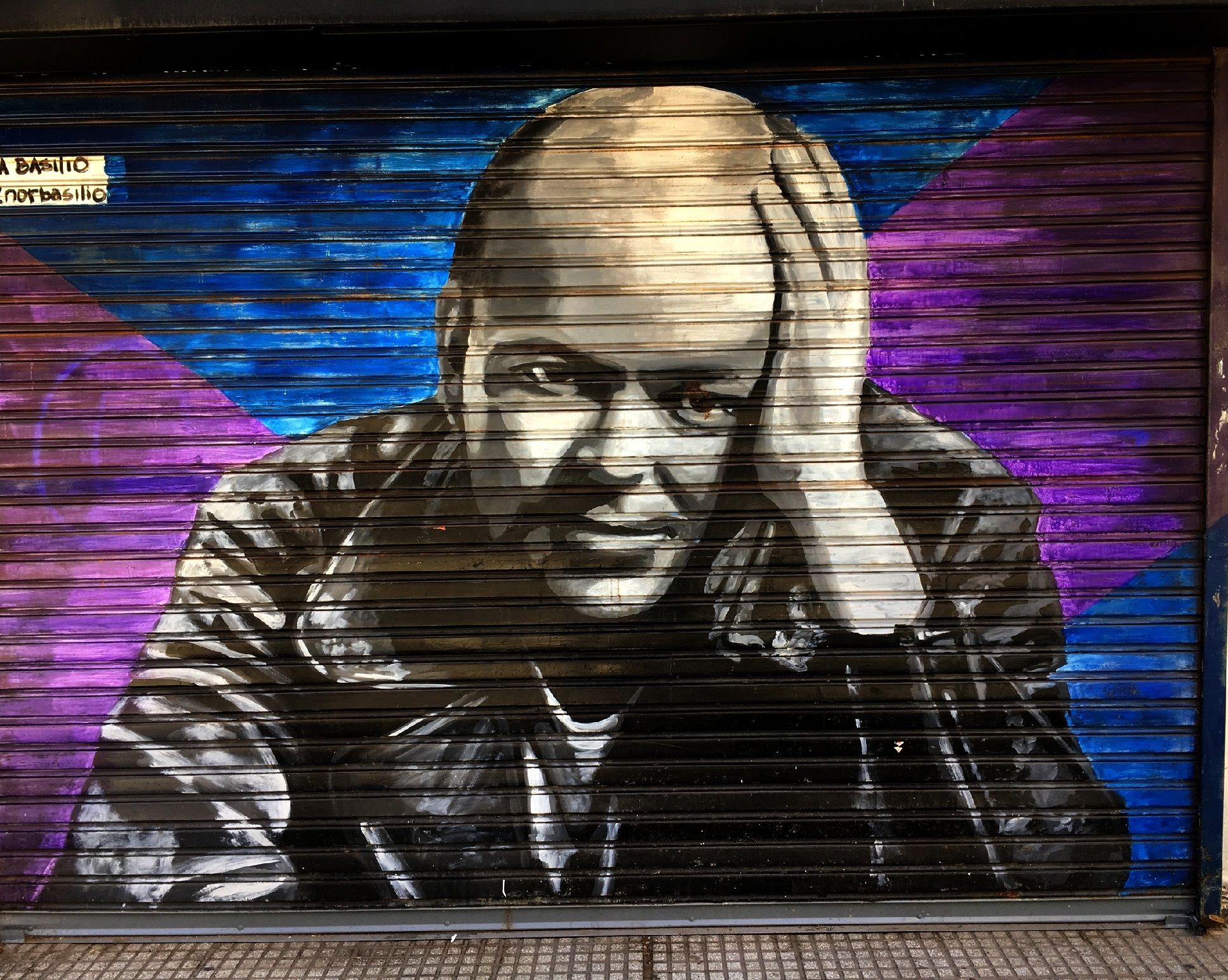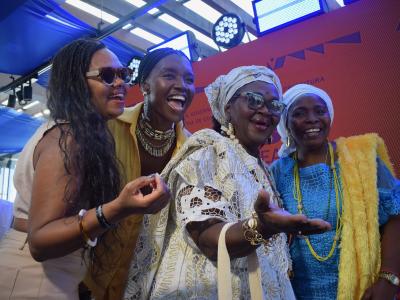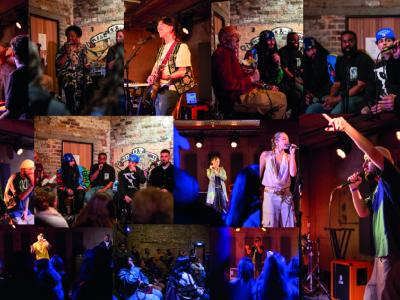If there is some truth to the old adage that “Argentines are Italians who speak Spanish and would like to be English,” Luca Prodan turned it on its head. Born in Italy, this product of Britain’s boarding school system, became the epitomy of Argentine rebel culture. He lived life to the extreme, to the point that he survived various drug-induced near-deaths, before running out of lives in 1987 at the age of 34. But before that tragic event, Luca Prodan became so influential that he has since acquired mythical status - a sort of Diego Armando Maradona of Argentina’s rock scene.
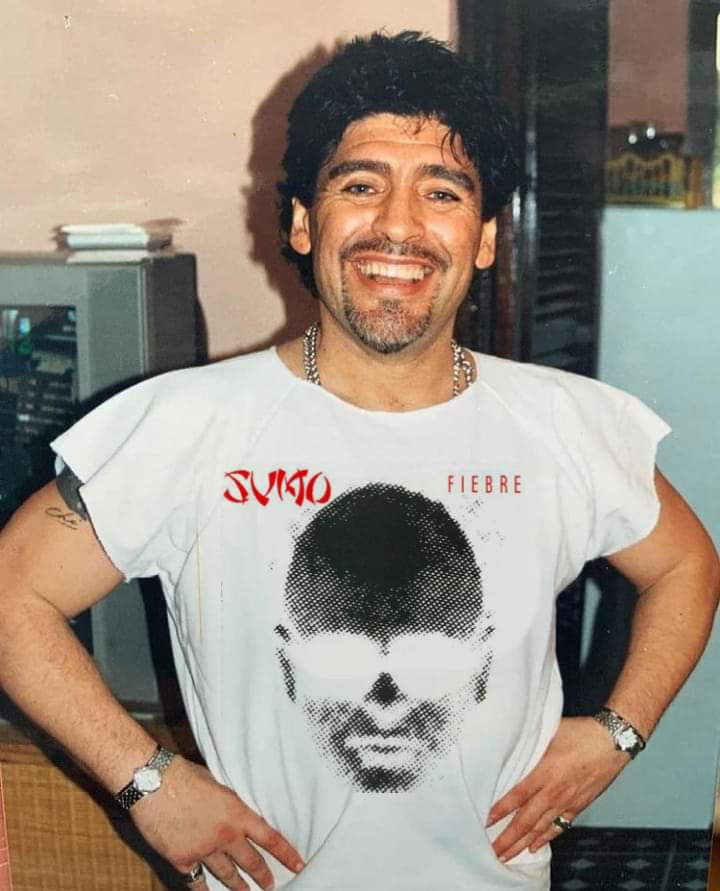
Prodan’s years at 30b Thames Road in Chiswick were instrumental in building this myth, hence the campaign to get a blue plaque mounted at the address. But before we get there, let’s start at the beginning of this curious story…
Luca George Prodan was born in Rome on 17 May 1953, the son of Mario Prodan, an Italian citizen born in the Austro-Hungarian Empire, and Cecilia Pollock, born in China to Scottish parents who lived in Shangai and Beijing before World War II. The third of four siblings, Luca was sent to Gordonstoun, one of the poshest boarding schools in the UK. In 1970, at seventeen, Luca fled the school and disappeared. While his family requested his search from Interpol, Prodan travelled Europe alone back to Rome, where he was arrested by the police, and retrieved by his mother.
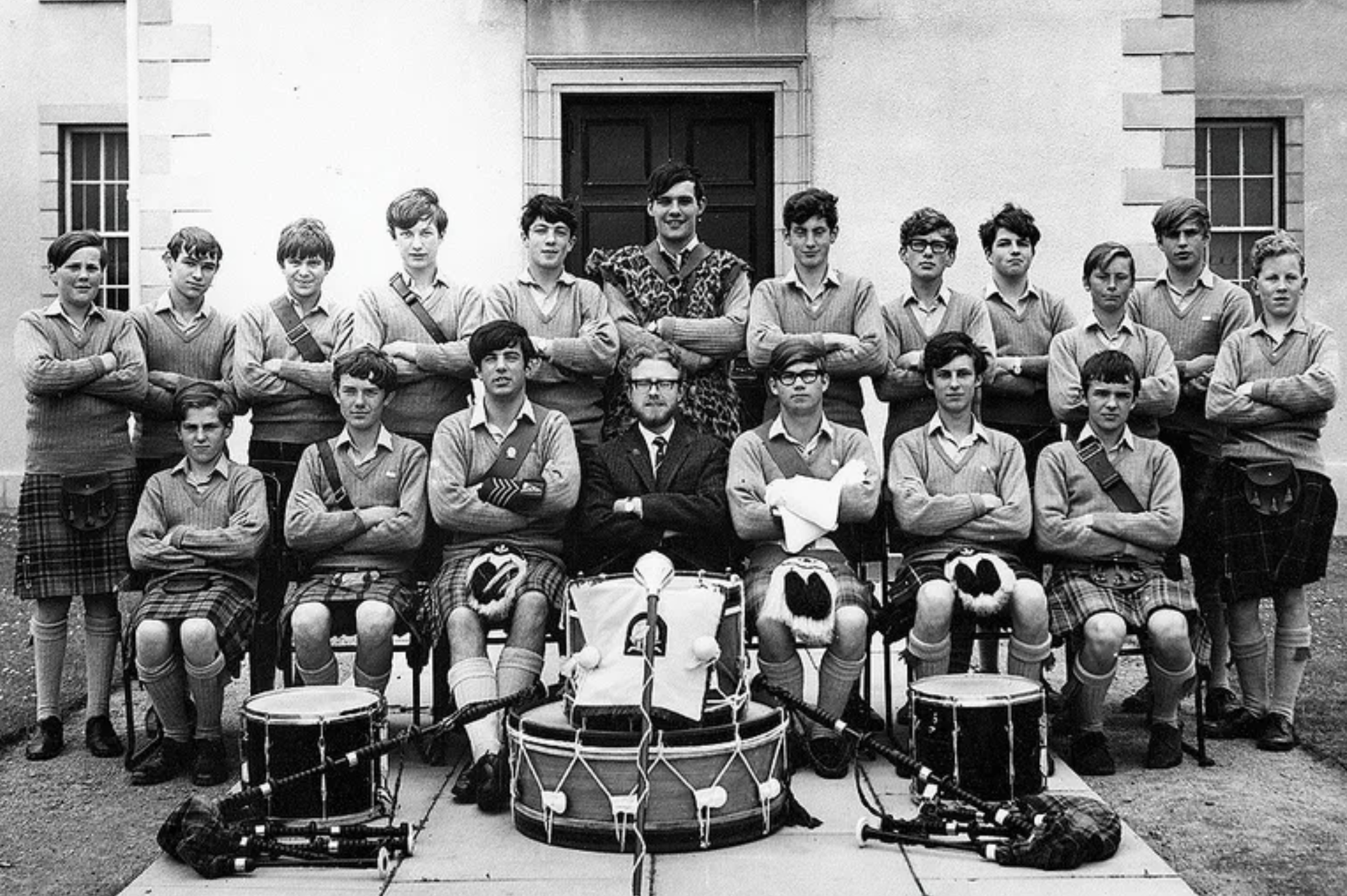
Luca ended up in London where he got a job at the Virgin record store in Marble Arch. By day in charge of the singles section, after work Luca formed his first band, The New Clear Heads, influenced by Joy Division (who later inspiring the title of the first Sumo album: Divididos por la Felicidad, Spanish for "Divided By Joy") and Wire.
Meanwhile at Virgin, he began to accumulate musical treasures–most of them stolen from the warehouse: one in 10 records he sold ended up in his house. He was fired, but recovered his job at the insistence of clients and colleagues who claimed "the Italian who could tell you the song just by listening to an out of tune whistle."
Indeed, Luca was extremely popular, cultivating great relationships with musicians who used to come and see how their records were selling and to spend time with Luca chatting, drinking cups of tea either in his house or in the megastore on Marble Arch. Nonetheless, this second chance at Virgin was short-lived as his theft, now on behalf of his friends, reached absurd levels. The next dismissal was final.
Living in London, Prodan struggled with a heroin addiction. In 1979, his sister Claudia committed suicide alongside her boyfriend, which had a profound effect on him, culminating in a heroin-induced coma where, for an instant he was presumed dead.
Searching for a way out of his addiction — which had already ended his sister's life, and almost his own — Prodan travelled to Argentina in March 1980, without knowing practically anything about the country. His only glimpse was a bucolic photo of the mountains of Córdoba, shown to him by Timmy McKern, the Argentine-Scottish friend whom he had shared school years at Gordonstoun. Timmy went to meet him at Ezeiza airport and put him up at his home in Hurlingham, Buenos Aires.
Argentina in the early 80s was still under a dictatorship that had spread fear among the student community as many were among the 30,000 ‘disappeared.’ When he arrived, Luca broke into a rock scene that was dominated by formally-educated musicians singing in Spanish. Whilst their lyrics could get them tortured and killed, Luca’s naiveté gave him an enviable freedom that added to his appeal and influence, says Andrea, Luca’s brother.
”It was still a dictatorship, and the fact that a Scottish Italian chap appeared singing in English right in the middle of the Malvinas War and not being worried about that in the slightest was really something quite bonkers, and I guess admirable, and which nowadays has a special value.”
At one dinner, Timmy introduced Luca to his brother-in-law Germán Daffunchio, who began to play the guitar while Luca sang, and the idea of forming a band was born. They moved to the McKern family's in Cordoba with Daffunchio and his friend Alejandro Sokol, and there the jams gave birth to Sumo, with Daffunchio on guitar and Sokol on bass. In the absence of heroin, Luca calmed the nerves and anxiety with marijuana and gin, a bottle of it a day. When he returned to Buenos Aires with Sumo, Luca took these new excesses with him but, unlike other members of Sumo, Luca became addicted.
Highly cultured, Prodan was a gentleman with flashes of punkish aggro on stage, which confused and captivated fellow musicians, critics and audiences alike. On a brief return to the UK in 1981 to buy instruments, Prodan recruited Stephanie Nuttal to be the drummer for his new band. The presence of the English girl in the line-up was unusual, especially in Latin America, but when the Falkland War broke out she had to return. The formation of Sumo would reach its maturity with the entry of saxophonist Roberto Pettinato in mid-1983. With Sokol leaving in 1984, Prodan, Daffunchio, Arnedo, Mollo, Troglio, and Pettinato, would remain until Prodan's death and the subsequent dissolution of the group.
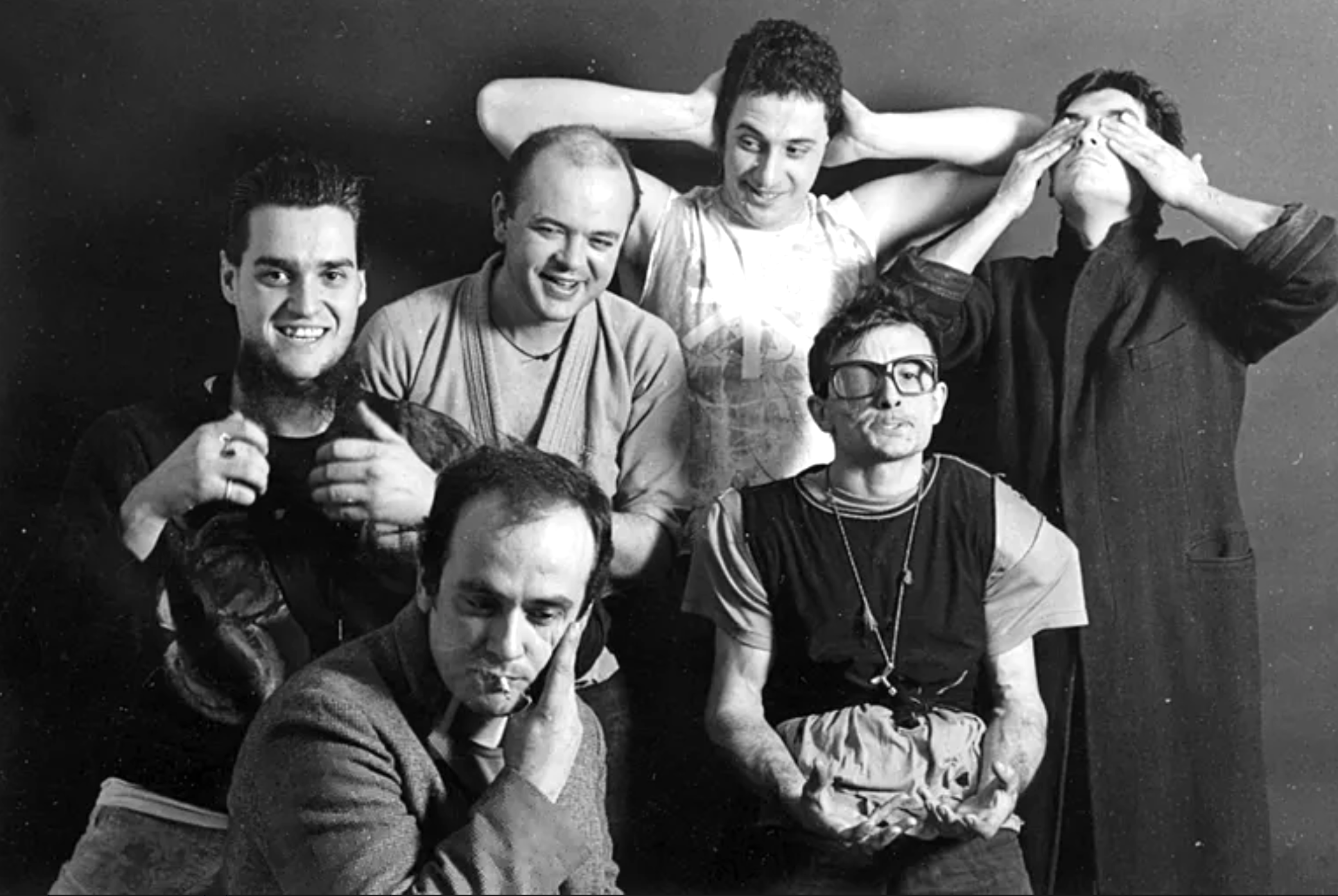
Sumo only lasted six years and recorded five albums, but that was enough to become one of the most influential bands in Latin America. In 2013, Rolling Stone magazine put three of Sumo’s five albums among the top 25 Latin rock albums: #5 Divididos por la felicidad (1985), #23 Llegando los monos (1986) and #42, After Chabon (1987).
When composing, Luca pushed his band members to mix genres. He introduced the sounds of London and Manchester to Argentine rock: ska in songs like Kaya or “Telephones/White Trash”; punk in songs like Noche de Paz; reggae in the iconic song el Reggae de paz y amor or “Regtest”. Divididos por la Felicidad (Divided by Joy) was a direct homage to Joy Division.
In addition, Jorge Serrano from Los Autenticos Decadentes credits Prodan with bringing “humour, irony and laughter” to Argentine rock. “He would sing an advertising jingle in the middle of a song. He included a lot of reggae in an unorthodox way, and that helped reggae to become more popular in Argentina.”
After Prodan’s death in 1987, a solo album Perdedores Hermosos [Beautiful Losers], which he recorded in 1981, was released - an album of great beauty both musically and poetically. The title song – a love song to all those who feel outsiders – still resonates today with those struggling to fit into traditional moulds of success and happiness.
“Luca was like a lighthouse shining in the Argentine musical scene. He was unique and strange, there was no one like him,” says Juanchi Baleiron, leader of the multi-Platinum and Gold-selling band Los Pericos. “He was wild and exploded with energy, but had some darkness at the same time; he transmitted a mysterious, different, hypnotic and climatic aura.”
Brave and fearless in a time of fear, as bandleader and artist, Prodan helped a new generation of artists emerge from under the rock of repression. Andres Calamaro, one of Argentina’s most successful musical exports, said: “Luca changed the sound of the Argentinian rock forever, he reset the scene after the dark dictatorship years.”
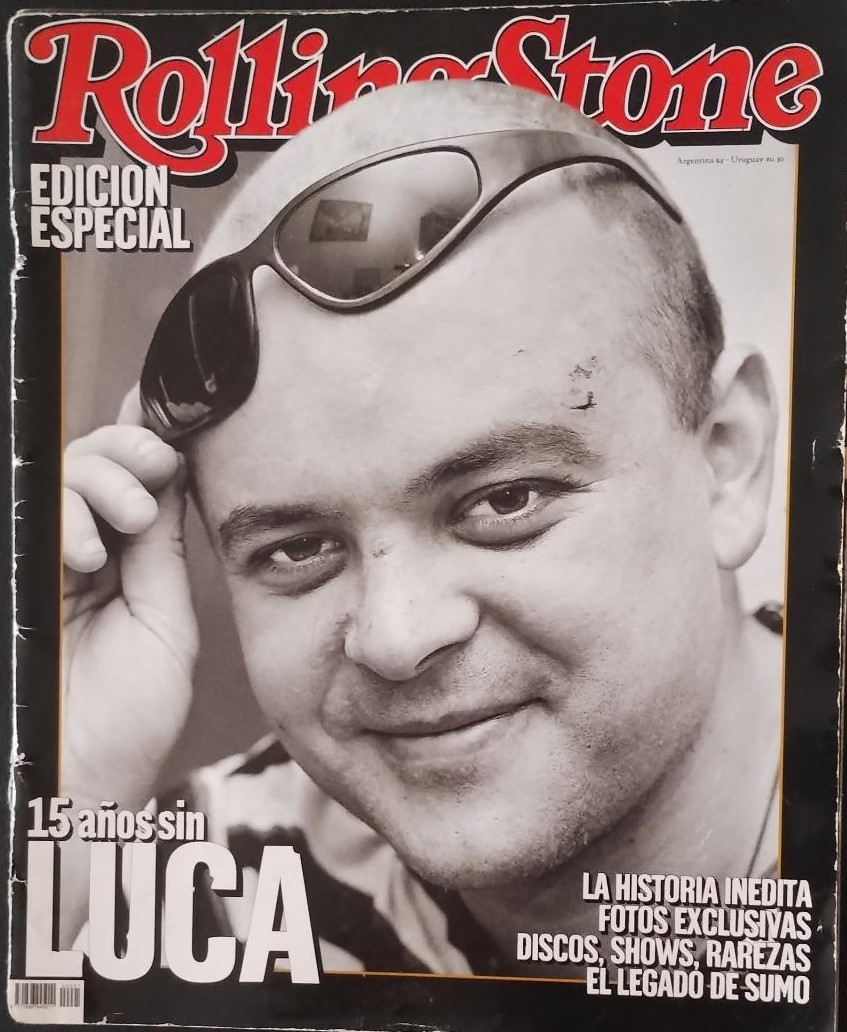
Humphrey Inzillo, the editor of Rolling Stone magazine and founder of Redpemib (the Association of Iberoamerican music journalists), claims “he was revolutionary and disruptive, in just 5 years he left a huge legacy behind.”
Prodan tapped into the Argentine spirit of rebellion. To this day, 35 years after Prodan’s death, millions of Argentine still jump and sing to the rhythm of Cruachan, a widely popular song about the Battle of Culloden, (the final battle in the 1745 Scottish uprising against the Crown) “It was seven hundred and forty-five, the highland spirit had revived. Mac Dougall and Mac Donald there, the clans had come from everywhere (...)”
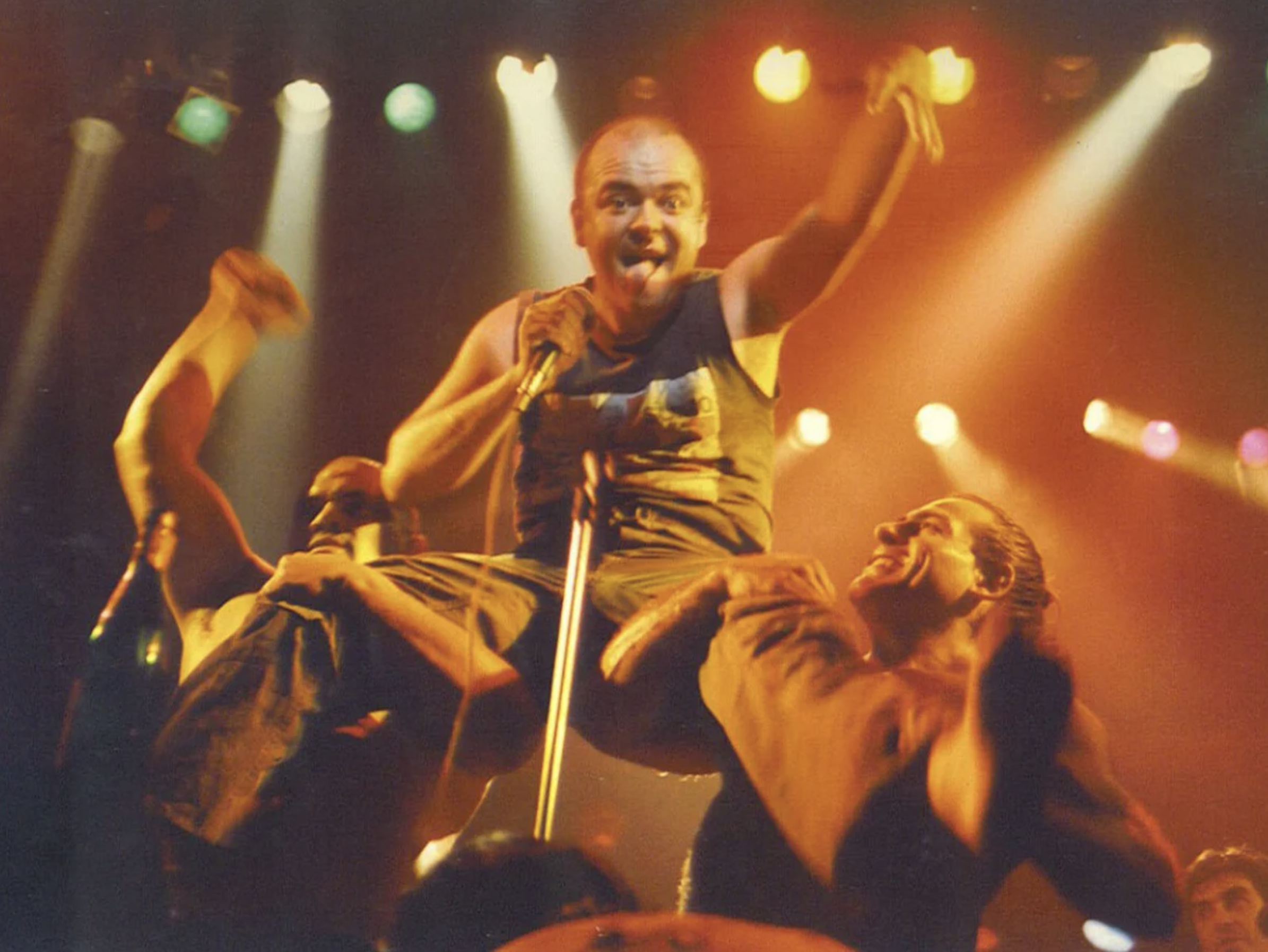
In his British years, Luca’s home in Chiswick was where he brewed everything he absorbed from the British music scene. It was also in Thames Road where Prodan hosted various rock personalities such as Andy Partridge, frontman of XTC; members of The Police; Lemmy, founder of Motörhead; and his good friend Elvis Costello. Years later, the house in Chiswick would take on a symbolic value for Argentine rock history, when Luca sold it and used the money to buy a portastudio, musical instruments and a one-way ticket to Argentina.
Asked on his thoughts about installing a Blue Plaque in London, Andrea Prodan said: “I believe Luca’s impact in Argentina and his roots in Great Britain, especially in Scotland, are fundamental for the building of good relationships between these two countries. After all, so much harm was done by the war, that I think bringing the figure of Luca Prodan into the British culture would be really worthwhile.”
And so, a petition has been submitted to London Heritage to install a Blue Plaque at Luca Prodan’s former house in Chiswick. In addition to the above legends of Argentine rock who have given their support, Javier Figueroa, Argentine Ambassador to the UK, concluded:
“This is a way of paying homage not only to Luca Prodan and the influence he had on Argentinian rock, but also to highlight a contribution to the cultural exchange between Argentina and the United Kingdom”.
If you would like to support the Blue Plaque for Luca campaign visit @unaplacaparaluca


